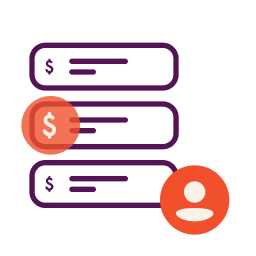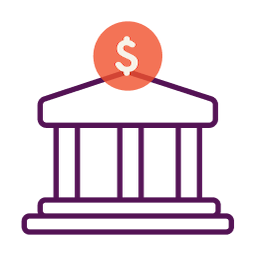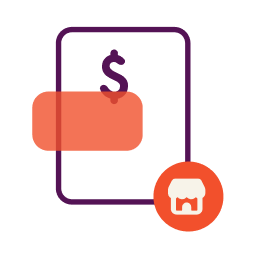Debt refinancing can make it easier and faster to pay back your business debt. When’s the right time to pay back your business loan? Find out here.
What Does Business Loan Refinancing Mean?
Refinancing business debt means using one loan or financing product to pay off an existing loan or debt.
Business debt consolidation is similar, but it usually involves using a new loan (or financing) to pay off more than one existing business debt.
A cash-out refinance allows the business to get a new loan to pay off an existing loan, plus borrow additional money with the same loan. This means a larger loan amount, but gives the business more cash to work with.
What Factors Should I Consider Before Refinancing My Small Business Loan?
If you’re thinking about refinancing your business loan, chances are your goal is to get better terms. But what does that mean?
Here are key factors that can help you answer that question:
Interest rates/costs
One of the main goals of refinancing is to save money. Here you’ll need to make sure you understand what you’re currently paying (the current interest rate and fees on your original loan) and compare it to the new loan you’re considering.
Interest rates have been rising in the past couple of years, so you may assume that if you’ve had your loan for a few years ago, you can’t get a lower rate. That may not be true, though, if your circumstances have improved.
Be sure to include the costs of the new loan in your calculation. Underwriting or application fees, as well as closing costs, will mean it will take longer to “break even” on the financial benefits of your new loan.
Finally, be sure to compare the total cost of the new loan with the total cost of your current loan to help you understand whether it’s really a good deal.
Repayment terms
Another major reason small business owners refinance is to get a better repayment schedule.
You may want less frequent payments; for example, to get away from daily or weekly payments and secure a loan with monthly payments instead.
Or you may want lower monthly payments than what you’re currently paying.
Loan length
If your needs have changed, you may want to refinance with a loan that’s a better fit. Let’s say, for example, you got a line of credit for short-term working capital needs, but now you realize you need that financing for a project that will take a couple of years to complete. A term loan might be a better fit in that case.
Credit scores
Some small business lenders check personal credit scores, some check business credit scores or reports, and some check both. If creditworthiness is a major factor for the type of loan you have and your credit has improved, you may be able to qualify for better financing.
Revenue
Monthly revenue or annual revenue is often a major qualifying factor for many small business loans. If yours have improved, you may be able to get a better loan.
Time in business
Most business lenders prefer to lend to businesses with at least two years in business. If your business was a startup when you got financing, and you now have at least a couple of years of business under your belt, you may have more financing options available.
How Soon Is Too Soon To Refinance a Loan?
While technically there’s no “too soon” time to refinance a business loan, there are two main factors that will help you decide whether the timing is right:
- Prepayment penalties. Some loans carry prepayment penalties that make it expensive to pay off a loan. The time frame for prepayment penalties can often vary, though one to three years is common. Check with your lender to find out whether the loan you want to refinance carries a prepayment penalty, and when it will expire.
- Changing qualifications. If your qualifications haven’t changed dramatically since you got the loan, then there may not be a good reason to refinance now. (An exception may be if you didn’t shop around for small business financing and ended up with a less favorable product than your business qualifies for.)
How Long Should You Have a Business Loan?
Small business financing terms should match the loan purpose. In other words, you don’t want to use a loan with a long repayment term to solve short-term cash flow problems. You wouldn’t want to take out a loan with a 5-year repayment term to buy inventory you plan to turn over in coming months, for example.
And you don’t want to get short-term financing if you need to pay back the money over a longer period of time. You wouldn’t use a 0% business credit card to buy commercial real estate, unless perhaps it was to finance a fix and flip project.
How Do You Refinance a Business Loan?
If you’re wondering whether it’s time to refinance a business loan or other types of small business financing, here’s how to go about it.
Review your loan terms
Make sure you understand your current loan terms. This is sometimes easier said than done because small business lenders aren’t always required to provide an annual percentage rate (APR). Ask your current lender to clarify costs, including any prepayment penalties.
Review your credit
Review your personal and business credit scores. Business financing may involve a personal credit check, business credit check, or both. You’ll want to be aware of any issues that could affect your ability to refinance.
When it comes to business credit, pay close attention to UCC filings. Too many UCC filings can affect your ability to qualify.
Review your finances
When applying for financing it’s helpful to have your bookkeeping up to date, as some lenders (especially traditional lenders like banks) may require up-to-date financial statements such as a current balance sheet or profit-and-loss statement.
Some will require business bank statements—or want to link to your business bank account to verify revenues—so they can do the analysis themselves.
Even if a lender doesn’t want financial statements though, it’s helpful to understand your business cash flow so you can run “before and after” scenarios if you refinance.
Gather documents
Some business lenders offer a very simple online business loan application process. You’ll input some details about you and your business, perhaps upload some documents about your business and even enable a link to your business checking account, and then hit the apply button.
Other small business loans, including some bank loans and SBA loans, have a detailed application process requiring a lot of documentation.
Here are some of the types of documents you may need to provide:
Personal Information:
- Current driver’s license or passport for proof of identity
- Personal tax returns
- Social security number
Business Information:
- Most recent six months of business bank statements
- Business license (if required)
- Business entity documents (such as articles of incorporation)
- Verification of address
- Voided check (for ACH or direct deposit)
- Franchise agreement/UFOC (if applicable)
- Commercial lease (if your business leases property)
- Most recent two years business tax returns (if available)
- Business plan (for bank loan or SBA loans)
Have this information readily available to help you be prepared to apply for the best loan for your business.
How Long Before You Can Refinance an SBA Loan?
There are several types of SBA loans including:
- Standard 7(a) loans
- SBA Express loans
- 7(a) Small loans
- Export Express loans
- Export Working Capital
- International Trade
- CAPLines
- Microloans
- 504 loans
Except for Disaster Loans, the Small Business Administration doesn’t usually make loans; instead it guarantees loans made by approved lenders.
While SBA loans offer excellent terms, there may be time when you decide you want to refinance out of the SBA loan program. Most SBA loans require a personal guarantee, and collateral when available, for example, so you may want to refinance with a loan that doesn’t require either.
Or you may have a loan with a variable rate that you’d like to refinance with a fixed rate.
It is generally difficult to refinance an SBA loan with another SBA loan. However, it is possible to refinance an SBA 7(a) loan with an SBA 504 loan. You may be able to get a lower interest rate, better cash flow through longer repayment terms, and free up some collateral with this strategy.
It is also possible to use SBA loans to refinance non SBA debt within SBA guidelines, and if your business qualifies.
What Is the Going Interest Rate for Small Business Loans?
There is a huge variation in small business loan interest rates depending on the type of loan or financing, the length of the loan, and the borrower’s qualifications.
While banks and credit unions often offer very attractive rates, it can be hard to qualify. Online lenders often offer fast financing but rates may be higher.
Find average small business loan rates here.
Types of Business Loans
Higher interest rates in recent years have made borrowing more expensive, and many loans have variable rates. But it can still be worth shopping around as different lenders and different loan options may offer a better rate.
- Line of credit: good for working capital and short-term financing
- Term loans: best for financing specific projects
- Equipment loans or leasing: use to acquire or upgrade equipment
- Crowdfunding: offers more flexible access to capital
- Business credit card: good for short term financing and available to startups
- Commercial real estate loans: loans for commercial real estate
- Invoice factoring or financing: use to speed up income from invoices
- Merchant cash advances: available to businesses with bad credit but good revenues
- SBA loans: variety of loans for businesses with somewhat flexible eligibility standards
- Microloans: small loans, often from non-profit lenders
- Vendor terms: supplier credit can improve cash flow and establish business credit
Not all of these offer good refinancing options, though.
Vendor terms, invoice factoring, equipment financing, and crowdfunding are typically used for new financing rather than refinancing.
Merchant cash advances are often used for new short-term financing rather than to refinance debt, though some business owners may refinance one cash advance with another. Be careful: this can add substantially to the cost of debt.
Most of the other types listed above may be used to refinance business loans if you qualify.
When Will Refinancing Your Business Loan Be Worth It?
When used the right way, business debt may help you grow your business faster than without it. If you borrow, you want to make sure you’re getting the best loan possible.
Refinancing a business loan can be worth it when it improves your business financial health. Fewer payments means you’ll have fewer chances to miss a payment. And lower-cost loan payments can help you save money you can put back into your business.
If you have business debt, it may be worth the time to find out whether refinancing your loan makes sense.
It’s easy to stay on top of your cash flow, personal and business credit, and to compare lenders and loan options with Nav. Get started now.




Have at it! We'd love to hear from you and encourage a lively discussion among our users. Please help us keep our site clean and protect yourself. Refrain from posting overtly promotional content, and avoid disclosing personal information such as bank account or phone numbers.
Reviews Disclosure: The responses below are not provided or commissioned by the credit card, financing and service companies that appear on this site. Responses have not been reviewed, approved or otherwise endorsed by the credit card, financing and service companies and it is not their responsibility to ensure all posts and/or questions are answered.